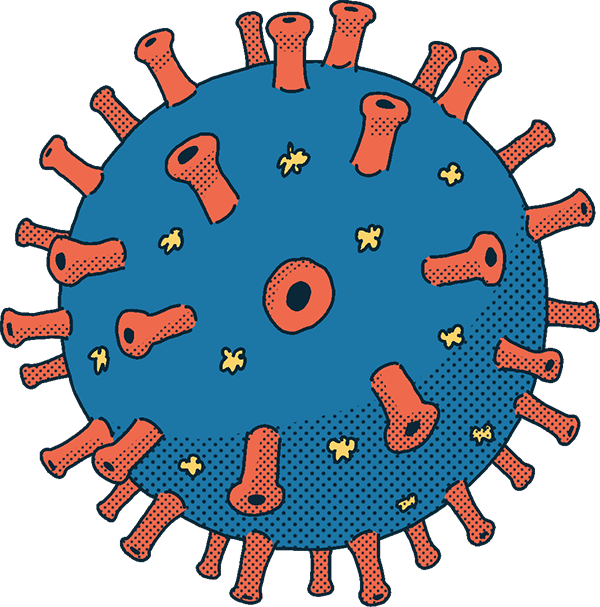Hong Kong: Becoming an R&D powerhouse


- The SARS outbreak in 2003 taught Hong Kong’s leaders how vital it is to invest in research and development in industries like healthcare and medicine.
- Having committed over HK$100 billion (US$12.9 billion) into innovation in recent years, Hong Kong has now become one of the fastest-growing hubs for emerging fields like biotech and telemedicine.
- A strong academic foundation and collaboration across industries, Hong Kong is seeing its innovations take center stage worldwide.
From Louis Pasteur’s rabies vaccine in 1885 to today’s AI-fuelled smart fever scanning systems, the biggest breakthroughs often stem from times of crisis and opportunity.
In 2003, the deadly SARS outbreak taught Hong Kong valuable lessons about bolstering healthcare and getting — as well as staying — ahead of the curve in research and development (R&D). Those lessons are now paying dividends in the fight against Covid-19.
With its robust R&D landscape and solid foundations in healthcare, Hong Kong has punched above its weight, bringing its innovations to the world. Here’s how.
A rapidly growing hub for medical innovation
Applying machine learning to drug discovery
Using state-of-the-art AI technologies, Hong Kong-based Insilico is helping to fast-track drug discovery, develop personalized healthcare and conduct pioneering aging research. Its application of these technologies recently yielded advances against the spread of the novel coronavirus.
On February 5, after less than a week of research, Insilico published a list of molecules that could target Covid-19 and help scientists expedite the process of finding treatments for the disease.
Its rapid response to the outbreak signals the arrival of a new era in medicine, one in which technologies like AI and machine learning yield faster, cheaper, more effective solutions for the world.
We [have] spent more than US$10 million on a generative chemistry platform that essentially combines many machine learning techniques together — generative adversarial networks, reinforcement learning, genetic algorithms. It’s essentially a huge Lego system of machine learning algorithms that can handle multiple cases. We were focusing primarily on cancer, fibrosis and many other diseases, and we still are… However, we’ve prioritized several projects related to COVID-19 specifically.

The key components to a flourishing r&d ecosystemThe key components to a flourishing r&d ecosystem

Government support
Commitment of over HK$100 billion (US$12.9 billion) in innovation and technology (I&T) development

Strong academic foundation
Research centers at the University of Hong Kong, Chinese University of Hong Kong, the Hong Kong University of Science and Technology, the City University of Hong Kong and the Hong Kong Polytechnic University have fronted several ground-breaking projects, including an AI-powered smart fever scanning system used to keep Covid-19 in check

Innovative healthcare systems
In 2021, CUHK Medical Centre is expected to develop into the city’s first fully digitalized smart hospital

Private players
French insurance group AXA expects to invest HK$220 million (US$28 million) in technologies like AI and data analytics

Location
Connected to most Chinese cities

Government support
In the past three years, the Government introduced several policies and allocated over HK$100 billion (US$12.9 billion) to support a series of measures for I&T development.
The Government funds biotech R&D through the Innovation and Technology Fund. At the end of April 2020, 587 projects related to biotech had been approved by the fund, receiving funding totaling about HK$1.2 billion (US$154 million). Project areas range from stem cell therapy and molecular diagnostics to the modernization of traditional Chinese medicine and biopharmaceutical manufacturing.
Government support also comes in the form of government-run schemes like the Innovation and Technology Commission’s (ITC) Public Sector Trial Scheme. With initiatives like the special call for trial projects to combat Covid-19, the scheme is helping to fast-track major breakthroughs in various technology areas, including healthcare technologies.
Much of that work is facilitated by government-backed research institutions and programs, including:
Hong Kong Science & Technology Parks Corporation (HKSTP), one of the most important incubators in Hong Kong, is building the city’s largest R&D base to turn ideas into market-ready solutions. One of the Park companies, Compathnion’s mobile app with AI and big data analytics paired with the electronic wristbands is supporting the Government for compulsory home quarantine during the epidemic. Its biomedical cluster, featuring a wet laboratory, biobank and device innovation hub, among other facilities, is fuelling advances in everything from medical devices and diagnostics to personal care and regenerative medicine.
The Government has allocated HK$10 billion (US$1.3 billion) for the establishment of the InnoHK research clusters in the Hong Kong Science Park to develop Hong Kong as the hub for global research collaboration. The first batch of R&D laboratories in the two research clusters, namely Health@InnoHK focusing on healthcare technologies and AIR@InnoHK focusing on artificial intelligence and robotics technologies, will be set up progressively this year. To further promote global R&D collaboration in Hong Kong, the Government is exploring the establishment of a third InnoHK research cluster.
Cyberport — another important incubator offers robust funding and support for start-ups. Recently, Cyberport introduced its Braving the Epidemic initiative, uniting the start-up community to develop solutions for the ongoing epidemic as well as future disruptions. The initiative has already produced innovations like Roborn’s 5G-enabled smart robot, which can monitor body temperature in public places, which helps identify people who may have come into contact with infected patients. The robot is already being put to use, such as by the Hong Kong Correctional Services Department and the Transport Department.
The Hong Kong Trade Development Council’s Start-up Express entrepreneurship development program. It helps local start-ups build connections, explore markets, seek partners and enhance brand awareness through participation in a series of activities including exploratory missions, power meet-up sessions with successful business leaders, business-matching sessions and local and overseas trade events. The start-ups will also enjoy extensive media exposure.
Hong Kong is strategically positioned to be a world-class biotech research hub with our solid IP protections, strong pool of research professionals, and globally recognized clinical trial capabilities. HKSTP will continue to provide a comprehensive support to the local biotech community to drive R&D breakthroughs for the greater good.

Strong academic foundation
Academics have been the bedrock of Hong Kong’s successful growth across the board, especially as the focus has shifted to innovation in science and medicine. Research centers at the University of Hong Kong, the Chinese University of Hong Kong, the City University of Hong Kong and the Hong Kong Polytechnic University (PolyU) have led to breakthroughs in everything from oncology and digestive disease to regenerative medicine.
Recently, researchers at the Hong Kong University of Science and Technology developed a smart fever scanning system with the aid of artificial intelligence, real-time tracking and big data analysis. Airport officials in Hong Kong have used that system to quash the spread of the novel coronavirus.
All of these institutes have received support from bodies such as the Health and Medical Research Fund, a government-sponsored initiative that has channeled over HK$2.9 billion (US$373 million) into R&D projects. That includes the HK$111 million (US$ 14 million) in funding granted to the medical schools at the University of Hong Kong and the Chinese University of Hong Kong this April to research Covid-19.
Forward-looking public healthcare institutions
In 2021, CUHK Medical Centre (CUHKMC) is expected to develop into the city’s first digitalized smart hospital. It will feature paperless medical record systems, patient care driven by real-time data and management systems powered by the Internet of Things, among other changes.
The Hospital Authority also launched the HA Go app recently. This mobile-focused portal harnesses big data to create a more patient-centric approach and facilitate healthcare beyond hospital doors.
People often perceive the hospital environment as a maze. We hope that, in future, CUHKMC patients will no longer need multiple referrals and inquiries to reach their doctors and contact the nurses who take care of them. They will be able to manage their own health through access to their own medical records, at ease.

Private sector players
Strong networks and collaborative environments, especially at incubators and clusters like Cyberport and the HKSTP, mean that investors and tech players are getting involved in the future of healthcare.
That includes companies like AXA. In 2019, the French insurance group said it expected to invest HK$220 million (US$28 million) in technologies like AI and data analytics. That same year, AXA also organized “Hack for Health,” a hackathon to nurture young talent and accelerate growth in smart healthcare.
These collaborations are leading to innovations in fields like telemedicine. Take Hollo, for instance, winners of Microsoft’s 2020 Imagine Cup. With support from Cyberport, the creators of this mental health-oriented app are leveraging AI and big data to improve care for providers and patients alike. The app offers quantitative measurements to track behavioral data on a simple dashboard and predicts potential risk for mental illness through machine learning, with suggestions for self-care practices depending on the intensity of symptoms. The app also provides back-end patient data for therapists and NGOs, streamlining their practice through digital transformation.
Located at the crossroads of Asia and the West
Of the funding the Financial Secretary Paul Chan pledged to innovation, HK$20 billion (US$2.6 billion) has been set aside for the development of the Hong Kong-Shenzhen Innovation and Technology Park in the Lok Ma Chau Loop, which will enable I&T companies around the world to leverage the competitive advantages of both Hong Kong and Shenzhen and accelerate their access to the Mainland market.
Staying ahead of the curve
One of the starkest lessons that Covid-19 has taught the world is the importance of always staying one step ahead. To do that, it’s essential to invest in R&D.
In Hong Kong, where R&D is a priority, the future of smart healthcare is already emerging. When the next global opportunity for change confronts us, Hong Kong will be ready.











